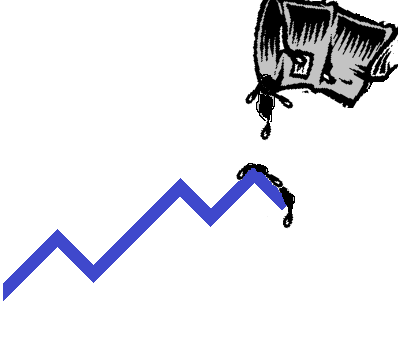 |
AUTHOR: Jason J. Roque, CFP®, APMA®
TITLE: Investment Adviser Rep – CCO TAGS: OIL, CENTRAL BANK, TRADE, BREXIT |
Markets lost on oil, trade, and dovish central banks. Data appeared to support the move, but will these headline headwinds persist?
Leave Already
Last week, progress was made in the three-year saga that is Brexit. The Eurozone is showing a willingness to discuss a Brexit that does not require a Northern Ireland back-stop. This is the major issue that has held the completion of Brexit up for the last six months. A willingness, however, is not a deal. Also, a deal would fly against the efforts of Prime Minister Boris Johnson’s attempts at a hard Brexit.
Supply Crunch
The largest oil processing plant in the world, last weekend, was attacked. This crippled half of the oil supplied by Saudi Arabia (or 5% of the global oil supply). Oil prices surged on the news, in fears of a supply crunch. Current projections have Saudi Arabia back up and running within a month’s time. Increased oil prices could cause further restraint by consumers and corporations alike. The increased cost could decrease discretionary spending elsewhere. It would take a pretty substantial increase in costs to crimp discretionary demand.
Trade… again…
Good news this time, China talks are on! Last week’s scuttling of a visit to Montana farm country was not in response to comments from President Trump. It sounds as if a full trade deal may still be possible with China, rather than a small initial deal. Additionally, a limited trade deal should be completed between the US and Japan in the next few weeks. Trump is meeting with Prime Minister Shinzo Abe next week, hopefully, more will be revealed at that time.
Doves a Plenty
There were several Central Bank meetings last week, nine in all. The behavior of these nine economies gives good insight into the health of the global economy. Increasing rates indicate economic health and a desire to curb inflation while lowering rates indicate economic weakness that requires stimulus to re-invigorate an economy. One central bank increased its rate, three left them unchanged, and five lowered key interest rates (including the US). The message is that global trade and Brexit are causing uncertainties, which is sidelining corporate and consumer spending.
Conclusion
The result of last week was more… unknowns. Oil prices created concerns about limited discretionary cashflows. Economic easing by central banks signal a weak economic environment. Brexit uncertainty creates a wait and see mentality in spending. The Bank of England left rates unchanged but was conciliatory in their verbiage regarding future cuts. The constant back and forth of trade dampens consumer and corporate spending. The mental condition in the global economy seems to be wait and see, which is toxic for growth.
Your interest in our articles helps us reach more people. To show your appreciation for this post, please “like” the article on one of the links below:
FOR MORE INFORMATION:
If you would like to receive this weekly article and other timely information follow us, here.
Always remember that while this is a week in review, this does not trigger or relate to trading activity on your account with Financial Future Services. Broad diversification across several asset classes with a long-term holding strategy is the best strategy in any market environment. Any and all third-party posts or responses to this blog do not reflect the views of the firm and have not been reviewed by the firm for completeness or accuracy.

